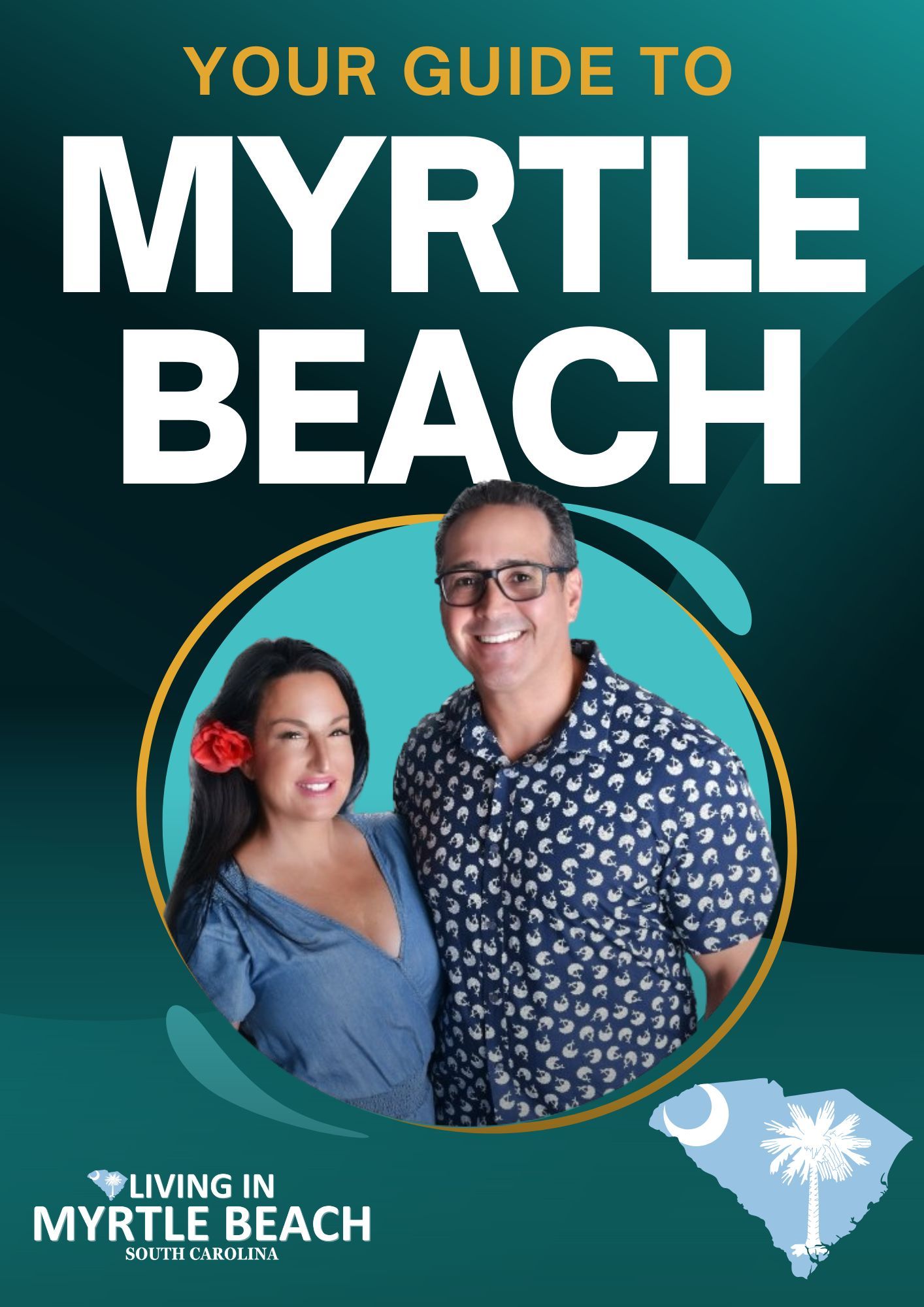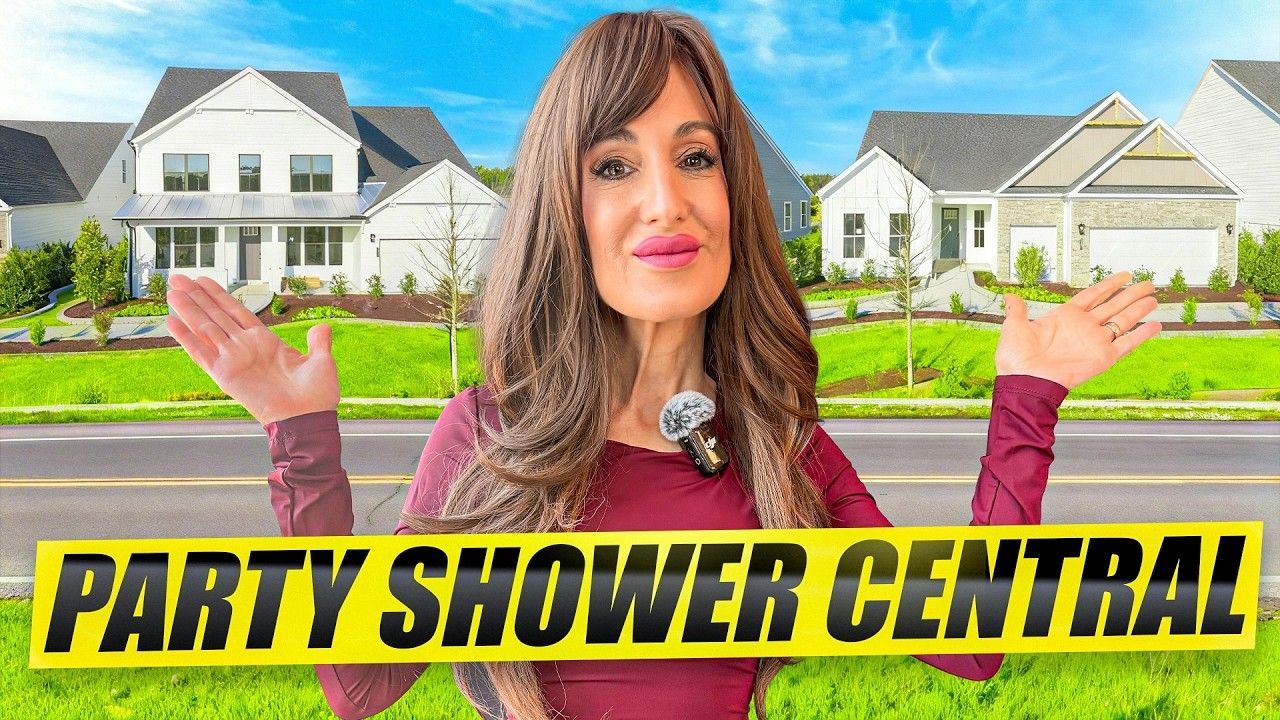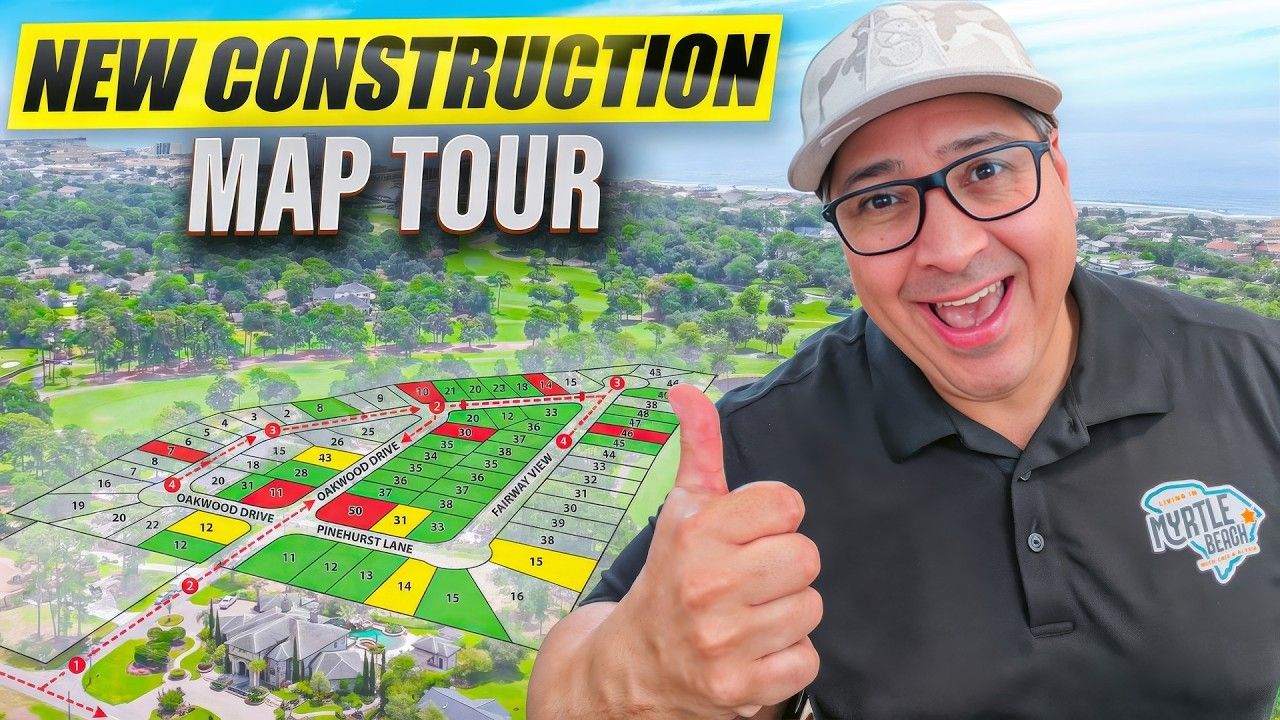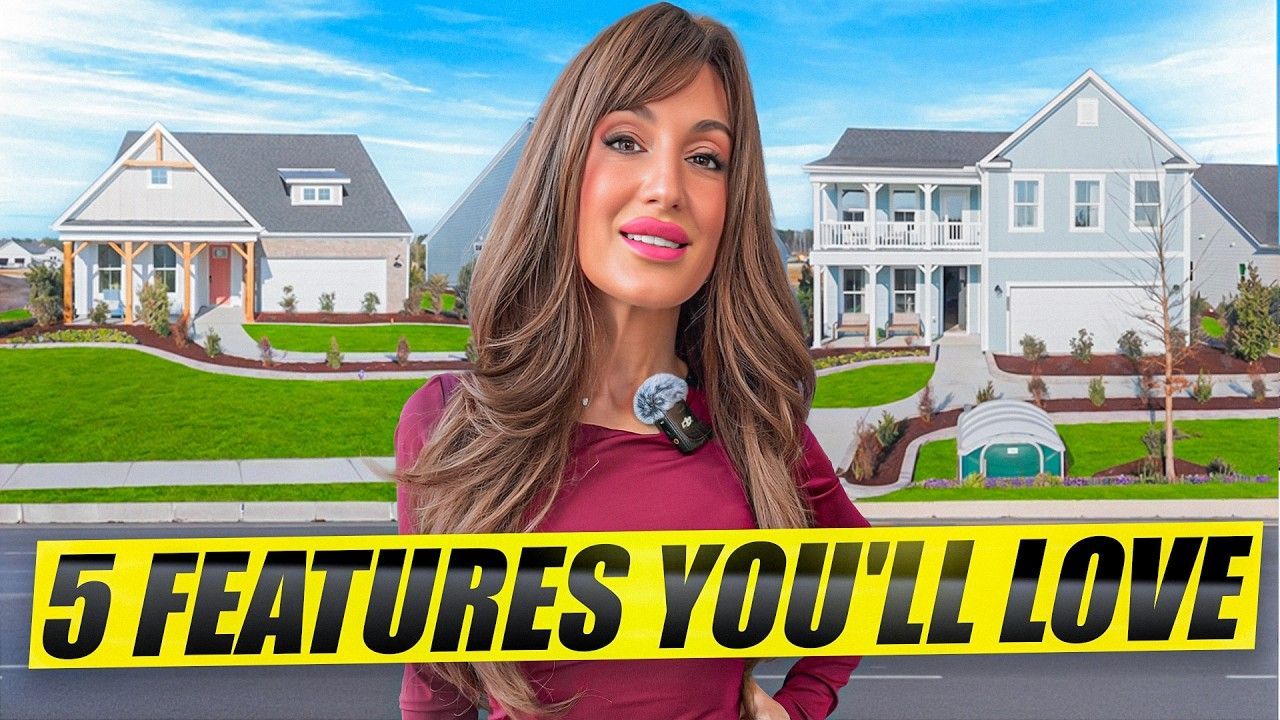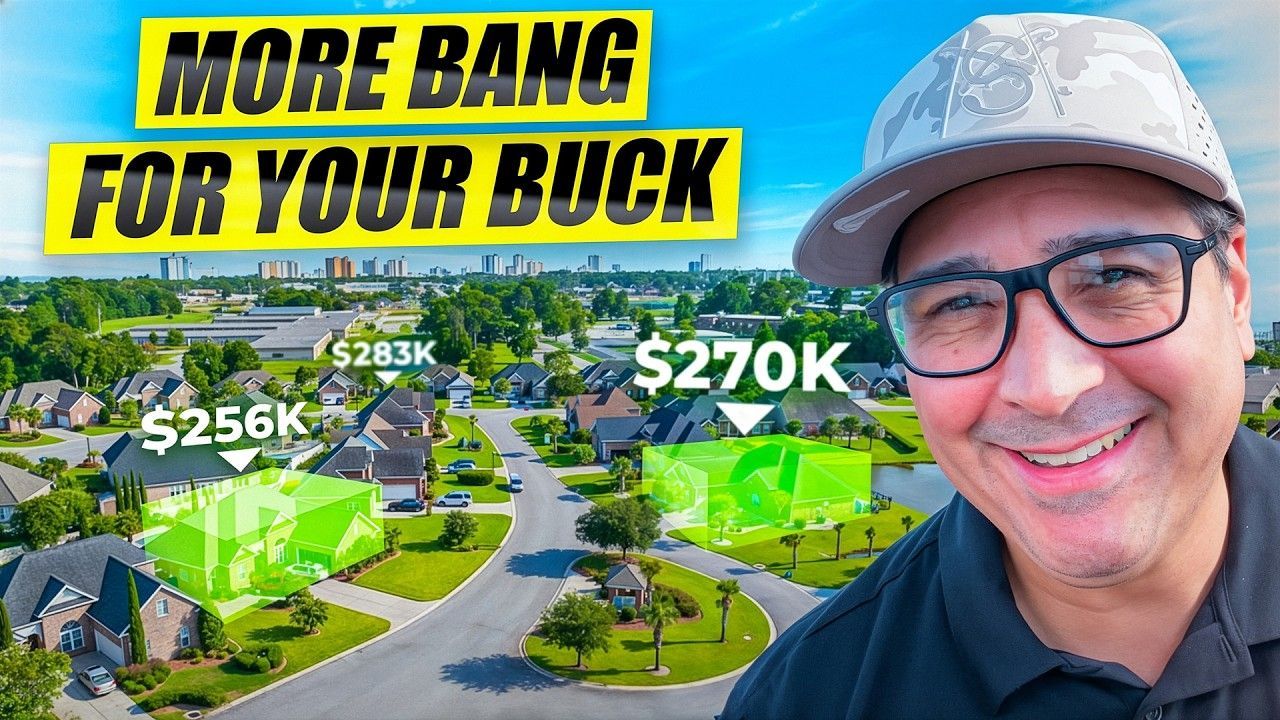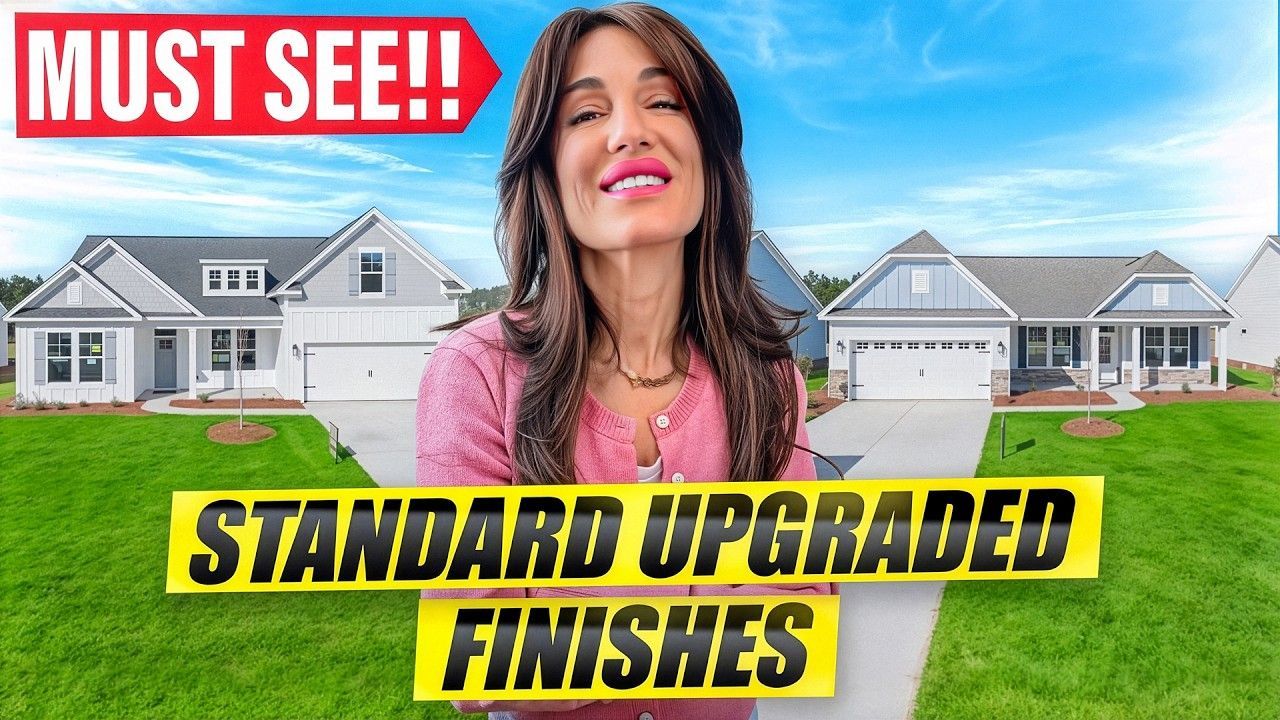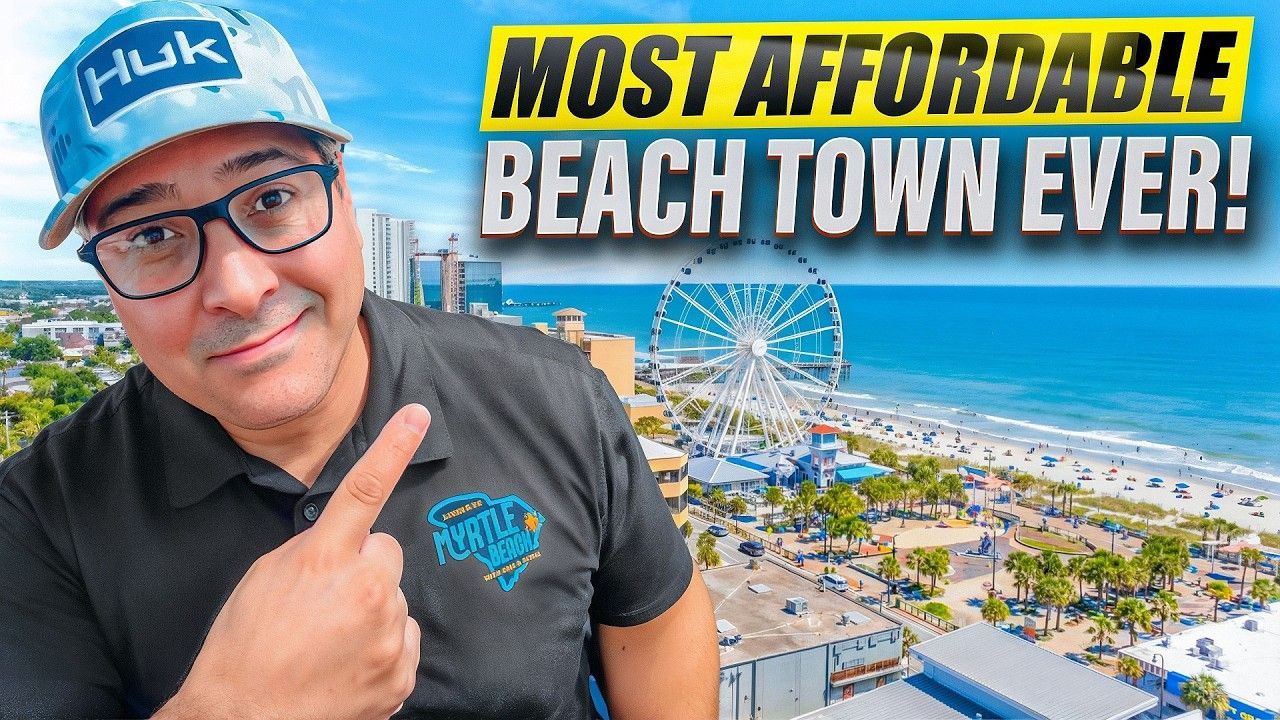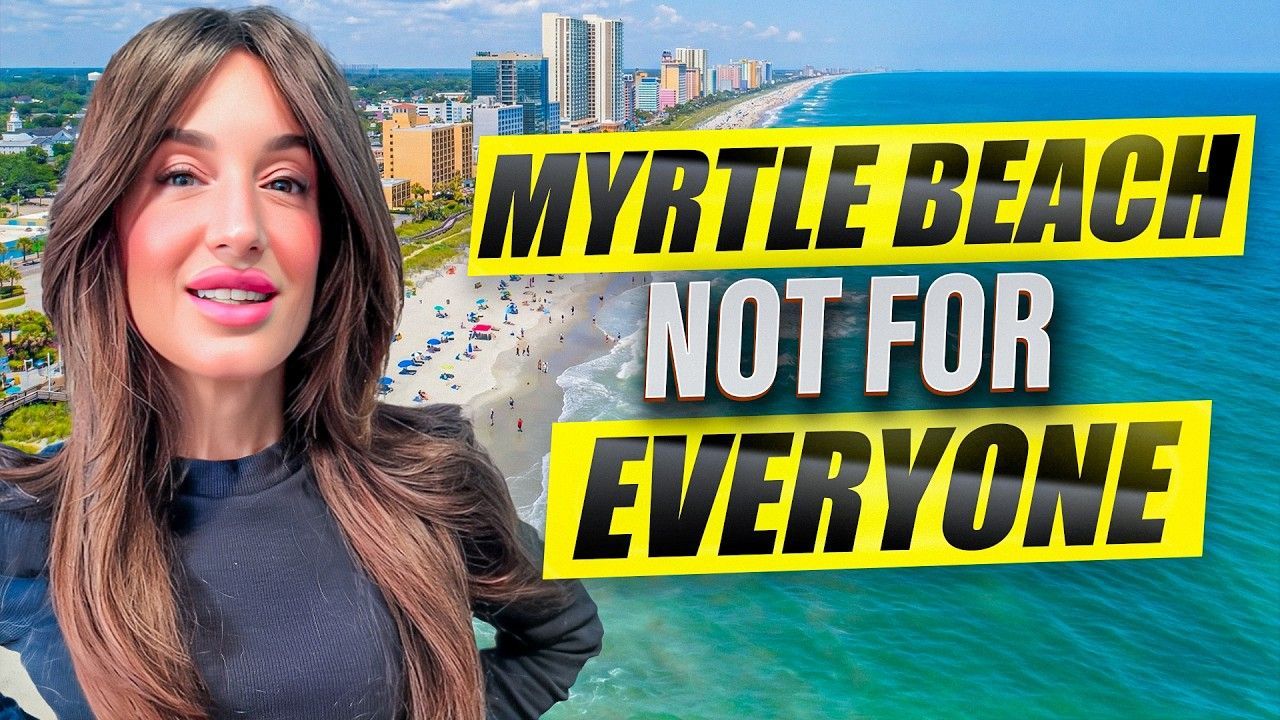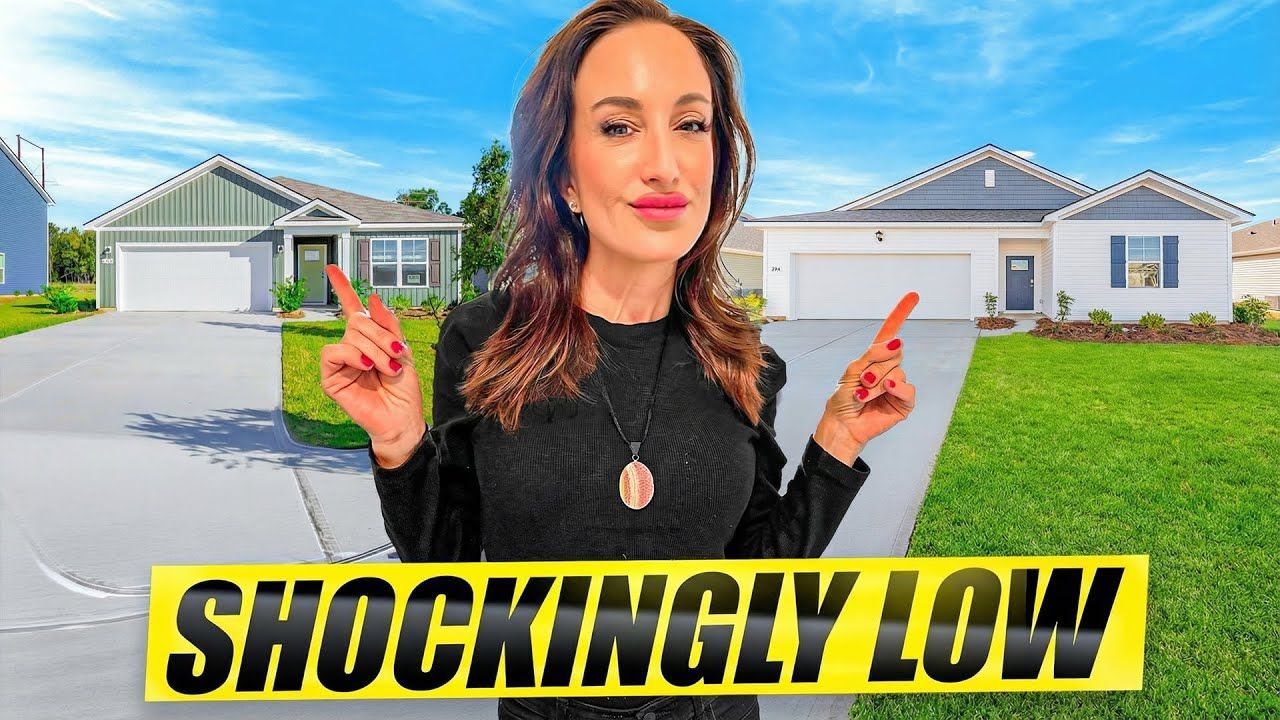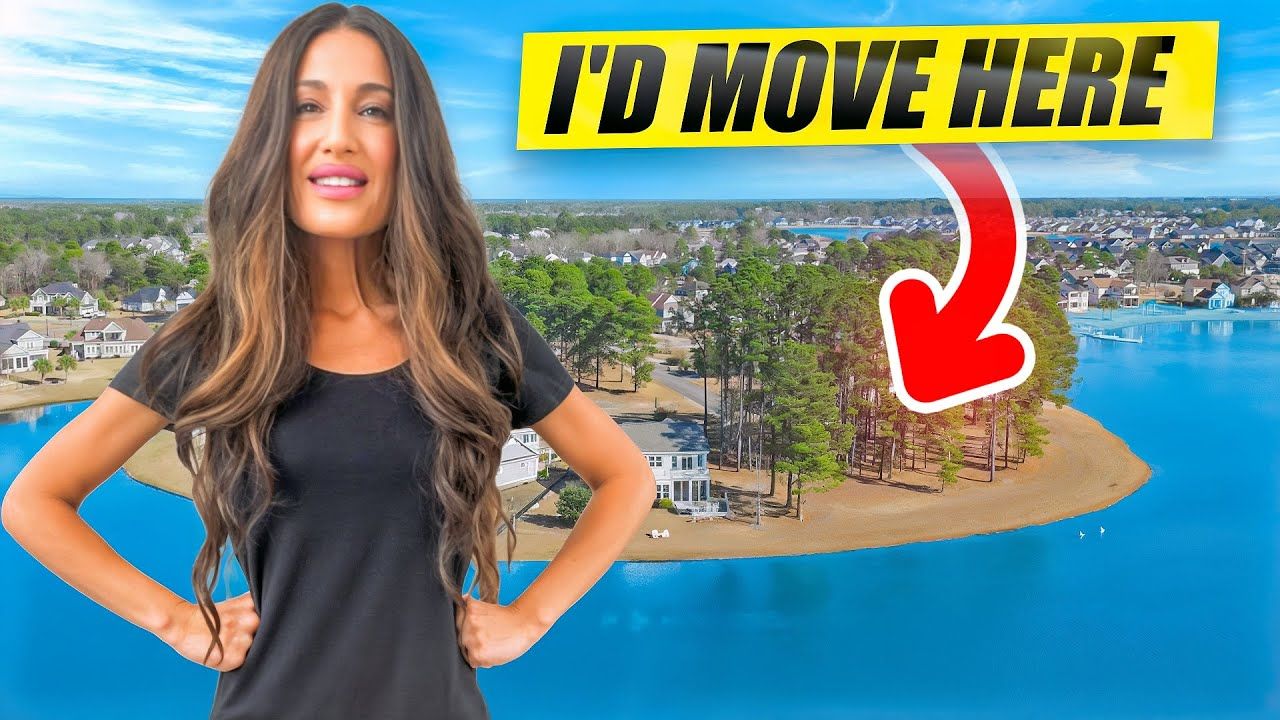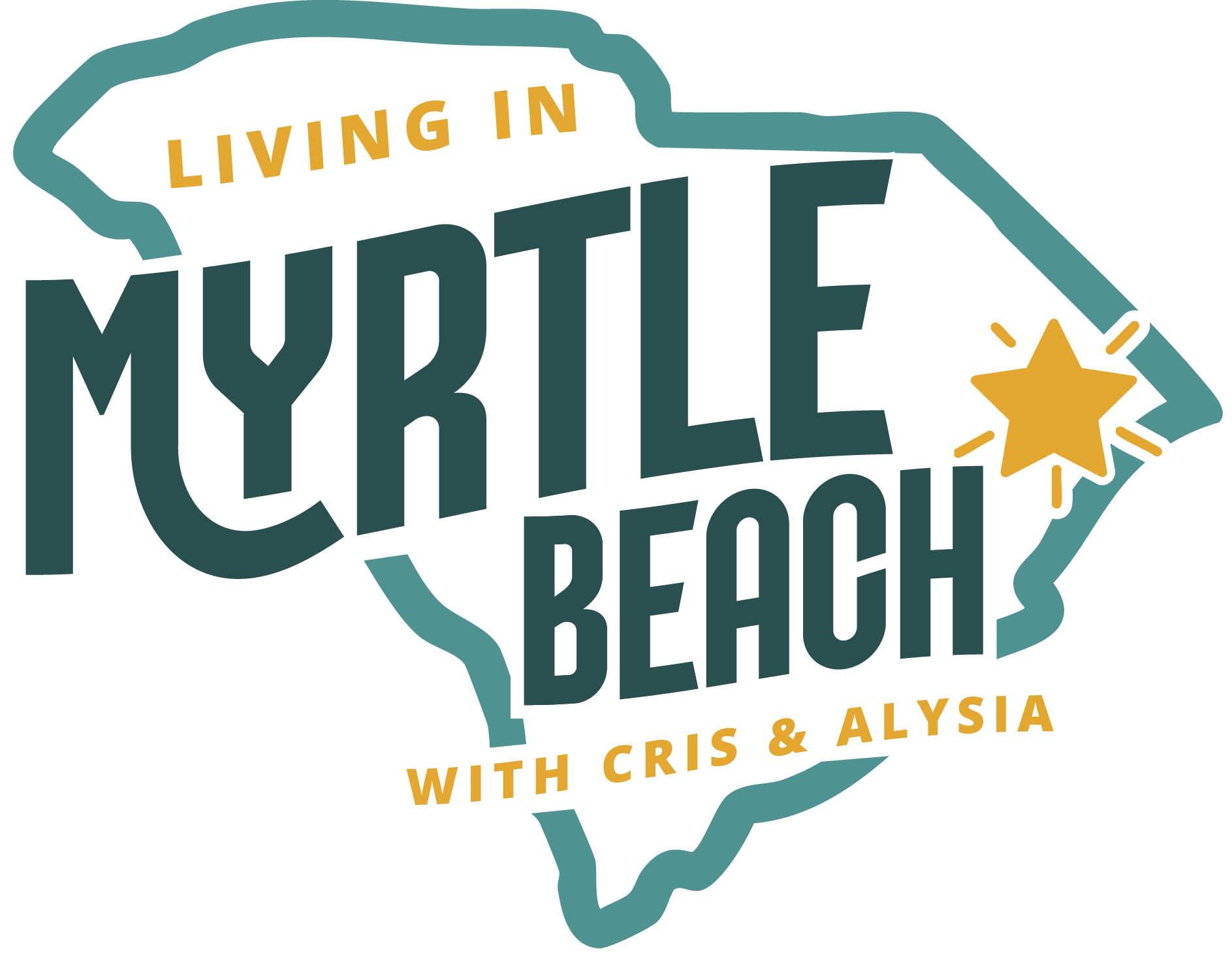Buying New Construction Home In Myrtle Beach? How To Avoid These MAJOR Mistakes!
Thinking about buying new construction homes in Myrtle Beach, SC? Before you sign anything, read this. I walked this path myself when I relocated, and I now help dozens of out‑of‑state buyers avoid the expensive missteps that can happen when you build or buy new construction. This guide covers every step from picking the right builder and floor plan to navigating upgrades, incentives, timelines, warranties, and the best times of year to negotiate. If you want a straightforward, boots‑on‑the‑ground roadmap for buying new construction homes in Myrtle Beach, SC, this is it.
Table of Contents
- Why Buying New Construction Homes in Myrtle Beach, SC Is So Popular
- Types of New Construction Homes in Myrtle Beach and Which One Is Right for You
- National Builders vs Local Builders in Myrtle Beach: Pros, Cons, and Incentives
- Budgeting and Financing Basics Before Visiting Model Homes
- Why You Should Hire a Buyer’s Agent for New Construction Homes in Myrtle Beach
- Choosing the Right Community and Lot for Your Myrtle Beach Home
- Picking and Future‑Proofing Your Floor Plan
- Inspections, Blue Tape Walk, and Final Walkthrough Tips
- Common Mistakes Buyers Make When Buying New Construction in Myrtle Beach
- When Is the Best Time to Buy New Construction Homes in Myrtle Beach, SC?
- Practical Negotiation Tips and Contract Protections for New Construction
- FAQs About Buying New Construction Homes in Myrtle Beach
- Closing Thoughts and Next Steps for Buying Your Myrtle Beach Home
Why Buying New Construction Homes in Myrtle Beach, SC Is So Popular
New construction draws buyers for obvious reasons: everything is brand new and under warranty. New roofs, new HVAC, new plumbing and appliances mean fewer surprises in the early years. Energy efficiency is also a major perk. My energy bill after moving from an older condo was significantly lower than what I paid back north, even with a tight thermostat setting.
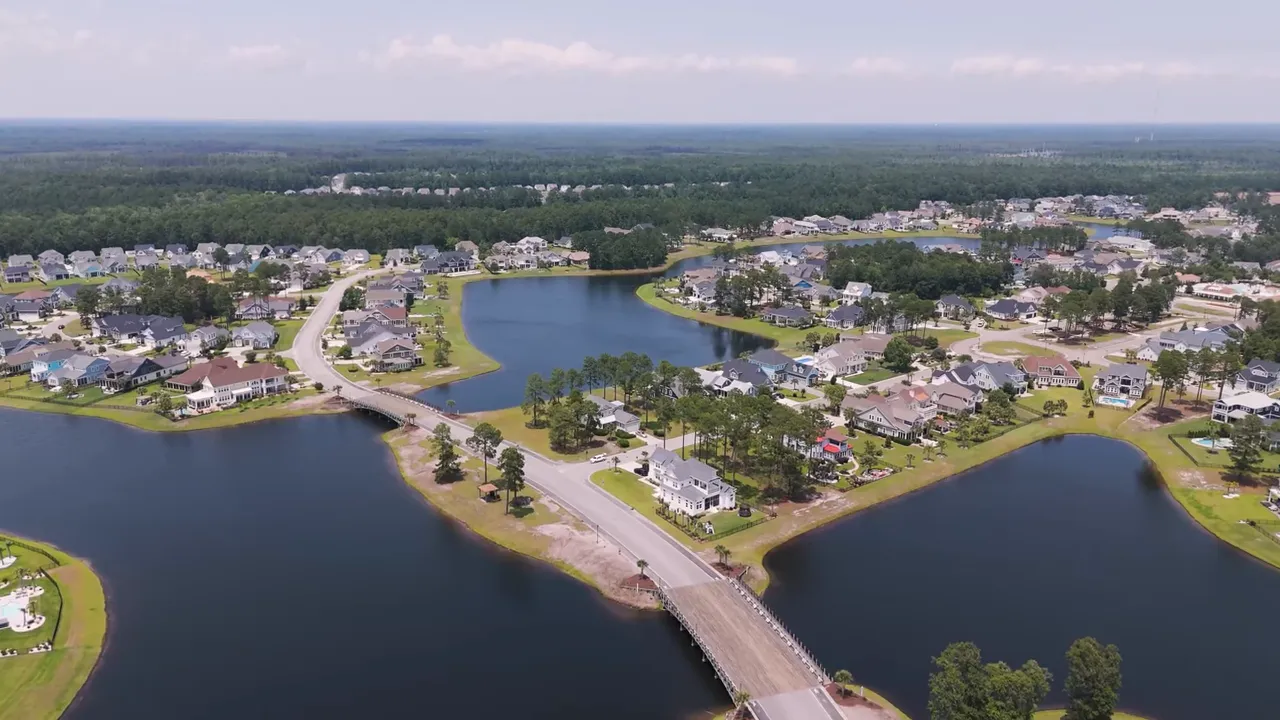
Beyond lower maintenance and energy savings, buyers enjoy personalization options. Semi‑custom and custom builds let you choose finishes, layouts, and upgrades so you can create a home that fits your lifestyle from day one. Builders typically include warranties that cover workmanship, systems, and structural items for specified timeframes, which offers extra peace of mind.
Finally, Myrtle Beach is experiencing heavy inbound migration. Many moves come from New York, New Jersey, Pennsylvania, and Ohio. The low cost of living, lower taxes, and beach lifestyle attract retirees and remote workers alike, which is why more than half of moves into the area are from out of state. That context helps explain why buying new construction homes in Myrtle Beach, SC has become one of the most popular real estate choices here.
VIEW MORE HOMES FOR SALE IN MYRTLE BEACH, SC
Types of New Construction Homes in Myrtle Beach and Which One Is Right for You
There are three primary new construction categories you will encounter. Each has different tradeoffs in price, timeline, and customization.
- Spec or inventory homes: Built without a specific buyer in mind and move‑in ready. Pros: fastest move‑in timelines and often easier to coordinate with a sale of your current home. Cons: limited customization.
- Semi‑custom homes: You pick a floor plan and finishes from a selection. These hit the sweet spot for many buyers. Timeline is typically four to eight months and you get moderate personalization.
- Custom homes: Built from scratch with maximum flexibility. Expect higher per‑square‑foot costs, premium lots, and longer timelines of eight to 12 months or more. These are best for buyers who need specialized layouts or high‑end finishes.
When buying new construction homes in Myrtle Beach, SC, identify your timeline and how much customization you want. If you need to move quickly, spec homes are attractive. If you want control over finishes but not a full custom process, semi‑custom is usually the best balance.
National Builders vs Local Builders in Myrtle Beach: Pros, Cons, and Incentives
Builders fall into two broad groups: national production builders and local builders. Know which you are working with because it will influence product consistency, incentives, and flexibility.
- National builders: Examples include DR Horton, Lennar, Toll Brothers, and Ryan Homes. Pros: predictable quality, streamlined process, and often stronger incentives tied to affiliated lenders such as closing cost assistance or interest rate buydowns. Cons: limited flexibility for structural changes and finishes beyond set options.
- Local builders: Examples include Beverly Homes and Chesapeake Homes in the Myrtle Beach region. Pros: greater flexibility for customization, deep local knowledge, and often more personal customer service. Cons: incentives are less consistent and may be smaller than national builder programs, though some local builders will run strong promotions seasonally.
When comparing offers, ask about builder‑affiliated lender incentives. Many builders provide $5,000 to $15,000 in incentives for using their lenders through rate buydowns or closing cost credits. That can move the needle when buying new construction homes in Myrtle Beach, SC.
Budgeting and Financing Basics Before Visiting Model Homes
Start with a preapproval. Preapproval gives you a realistic price range and prevents falling in love with homes outside your budget. If you plan to work locally after relocating, note that some lenders expect six months of local employment documentation. Remote workers and retirees usually face fewer hurdles, but every situation is different.
Common financing routes:
- Builder lender programs: May include rate buydowns or credits toward closing costs. These are attractive but compare against outside lenders to ensure the best deal.
- Conventional loans: Require better credit and sometimes higher down payments, but they provide flexibility.
- VA loans: Attractive for eligible veterans because no down payment is required.
- Low‑down payment programs: Can be useful, but factor mortgage insurance into monthly payment calculations.
Before touring communities, get preapproved and bring your financing questions to your agent so they can negotiate incentives effectively on your behalf.
Why You Should Hire a Buyer’s Agent for New Construction Homes in Myrtle Beach
Model home agents work for the builder. They represent the builder’s interests, not yours. Hiring an experienced buyer’s agent who knows local builders will protect your interests and maximize incentives.
What your buyer’s agent should do for you:
- Negotiate builder incentives beyond what the model agent will offer.
- Arrange independent inspections during pre‑drywall and final stages.
- Provide boots‑on‑the‑ground monitoring when you are relocating from out of state, including video and FaceTime walkthroughs when you cannot attend in person.
- Help you compare HOA rules, flood risk, school zones, and commute impacts.
- Document communications and promises to hold the builder accountable if timelines slip.
Most builders pay buyer broker commissions, meaning you can have representation without an extra fee. When buying new construction homes in Myrtle Beach, SC, having local representation can save you thousands and avoid surprises.
Choosing the Right Community and Lot for Your Myrtle Beach Home
Matching community features to your lifestyle is as important as the house itself. Consider whether you want an active adult community, a golf community, coastal living, or a family‑friendly subdivision. Evaluate seasonal traffic and commute times. Myrtle Beach sees significant tourist flux, and summer traffic can dramatically impact travel times in some neighborhoods.
HOA fees and rules vary widely. Some communities have minimal HOA fees under $50 per month while others run $300 to $500 a month. Read HOA documents carefully before buying to understand restrictions on paint colors, RV parking, rental rules, and exterior maintenance.
Lot selection is where choices translate directly into cost. Premium lots with water views, cul‑de‑sac positions, or wooded backing often carry lot premiums ranging from $10,000 to $50,000. Builders release lots in phases, so if a particular lot is important to you, be prepared to act quickly when it becomes available.
Key lot considerations:
- Orientation and southern exposure for natural light and energy efficiency.
- Natural drainage and slope to avoid backyard water issues.
- Yard size and usable outdoor space for your lifestyle.
- Distance from the community entrance, amenities, and busy roads.
Picking and Future‑Proofing Your Floor Plan
Think five years ahead. A floor plan that fits today might feel too small or too large as your needs change. Look for flexible spaces that can evolve: a flex room with a closet that becomes a bedroom, a bonus room for future expansion, or attic space that can be finished into an office or play area.
Consider multi‑generational options if you foresee aging parents or long‑term guests. Many builders offer in‑law suites or separate living areas that provide privacy and resale appeal.
Exterior choices matter too. Elevation options and exterior finishes can affect curb appeal and future resale. In many communities, builders regulate which elevation goes on which lot to ensure variety. If a particular elevation is important, check lot assignments early and be prepared to negotiate or plan exterior upgrades after closing.
Design center strategies: where to spend your upgrade dollars
The average buyer exceeds their upgrade budget by about 20 percent. Walk into a design center with a clear plan and prioritized list. Know what features are standard versus what is an upgrade. Ask the builder for a written list of inclusions so you can compare bricks‑and‑mortar differences between communities and builders.
High‑value upgrades that preserve resale value:
- Kitchens: cabinetry, counters, and appliances.
- Flooring: durable and neutral choices like wood or luxury vinyl plank.
- Master bathroom: functional layouts and quality fixtures.
- Electrical and lighting: adequate outlets, smart home wiring, and good lighting are often undervalued until you need them.
Avoid over‑personalizing finishes that will limit appeal to future buyers. If you plan to sell within a few years, keep designs tasteful and broadly appealing. Reserve a portion of your budget for projects you can complete after moving in if you want to spread cost over time.
Build timeline explained and how to protect yourself
Typical build stages and timeframes:
- Contract and permitting: 30 to 45 days for approvals and site prep.
- Foundation and framing: one to two months for foundation, framing, and roof.
- Mechanicals and drywall: one to two months for electrical, plumbing, and HVAC installation plus drywall.
- Finishes and completion: one to two months for flooring, cabinets, countertops, fixtures, painting, and final touches.
Overall, expect four to ten months in most cases depending on complexity and size. Supply chain disruptions can extend timelines, though they have become less common. Ask your contract what happens if the builder misses the promised completion date. Many buyers negotiate a clause for compensation or a per‑diem allowance for extended temporary housing if the builder misses substantially. That can be a critical protection when you are coordinating a move from another state.
Monitoring construction when you cannot be there
If you are relocating from out of state, you will rely on your agent to be your eyes and ears. A good agent will:
- Visit the site weekly and keep you updated with photos and video.
- Facilitate pre‑drywall inspections to check framing, plumbing, and electrical before drywall is installed.
- Join blue tape or final walkthroughs via FaceTime if you cannot attend in person.
- Document all communications and timeline updates from the builder.
Working with me, a local agent who will perform detailed walkthroughs and maintain a record of promises will save you stress and keep the builder accountable.
Inspections, Blue Tape Walk, and Final Walkthrough Tips
Just because it is new does not mean you can skip inspections. Hire an independent inspector for pre‑drywall and final inspections. Many buyers pay $350 to $500 per inspection, which is a small price compared to identifying structural or system issues early.
The blue tape inspection happens one to two weeks before closing. Walk every room and place blue tape on imperfections you want corrected before closing. Test appliances, run the dishwasher, flush toilets, open and close windows, and check doors and cabinets. Many of the major issues can and should be fixed before possession.
Minor cosmetic items are normal as the home settles and are usually covered under the one‑year workmanship warranty. Focus on functional and significant cosmetic issues during the blue tape walk so they can be addressed promptly.
Warranties: what is covered and for how long
Builder warranties differ, but a common structure includes:
- One year for workmanship, finishes, and materials.
- Two years for systems such as plumbing, electrical, and HVAC.
- Ten years for structural elements including foundation, load‑bearing walls, and roof framing.
During orientation, the builder will walk you through operation of systems and appliances and provide instructions and warranty registration details. Most builders require warranty requests to be submitted through an online portal to establish a clear timeline for repairs. Keep detailed records of every warranty request and the builder response.
Common Mistakes Buyers Make When Buying New Construction in Myrtle Beach
Here are the top mistakes I see repeatedly and how to avoid them when buying new construction homes in Myrtle Beach, SC.
- Skipping private inspections: Municipal inspections ensure code compliance but do not replace a private inspector who will look for workmanship issues and potential future problems.
- Over‑upgrading: Excessive custom finishes can price your home above neighborhood comps. Prioritize kitchen, master bath, flooring, and electrical upgrades that add resale value.
- Assuming everything is included: Refrigerators, window treatments, and landscaping are often upgrades or optional. Get a written list of inclusions.
- Ignoring HOA rules: Not all communities allow short‑term rentals or RV parking. If rental income or vehicle storage matters to you, verify HOA restrictions up front.
- Not using buyer representation: Model agents represent the builder. A buyer’s agent protects your interests, negotiates incentives, and ensures you understand the contract.
When Is the Best Time to Buy New Construction Homes in Myrtle Beach, SC?
Timing affects selection and negotiating power. Here is how seasons typically play out for buying new construction homes in Myrtle Beach, SC.
- Spring (March to May): Largest selection of homes and lots, but highest competition and peak prices.
- Summer: Good availability with slightly less competition. Builders maintain moderate incentives.
- Fall: Less selection but better pricing as builders clear inventory before year end.
- Winter (December to February): Best time to negotiate. Builders often offer their strongest incentives, including rate buydowns and closing cost coverage, to hit year‑end sales goals.
I bought my home in the winter and benefited from a strong package: a 4.9 percent interest rate, full closing cost assistance, and an appraisal that returned $10,000 more than my purchase price. If you can time your purchase around fiscal year‑end for the builder, you may access even better closeout deals as developers try to hit sales targets.
Expert Guidance Every Step of the Way. How We Help You Buy New Construction
Practical Negotiation Tips and Contract Protections for New Construction
When negotiating, focus on four things that deliver real value:
- Interest rate buydown or lender credits to lower monthly payment.
- Closing cost assistance to reduce cash at closing.
- Appliances or landscaping included as part of the deal.
- Contract clauses that provide remedies or compensation if the builder misses substantial completion dates.
Always ask the builder whether they include per‑diem compensation or temporary housing coverage for delays over a threshold such as 30 days. Not every builder offers this, but getting it in the contract is a powerful protection when you are coordinating a long distance move.
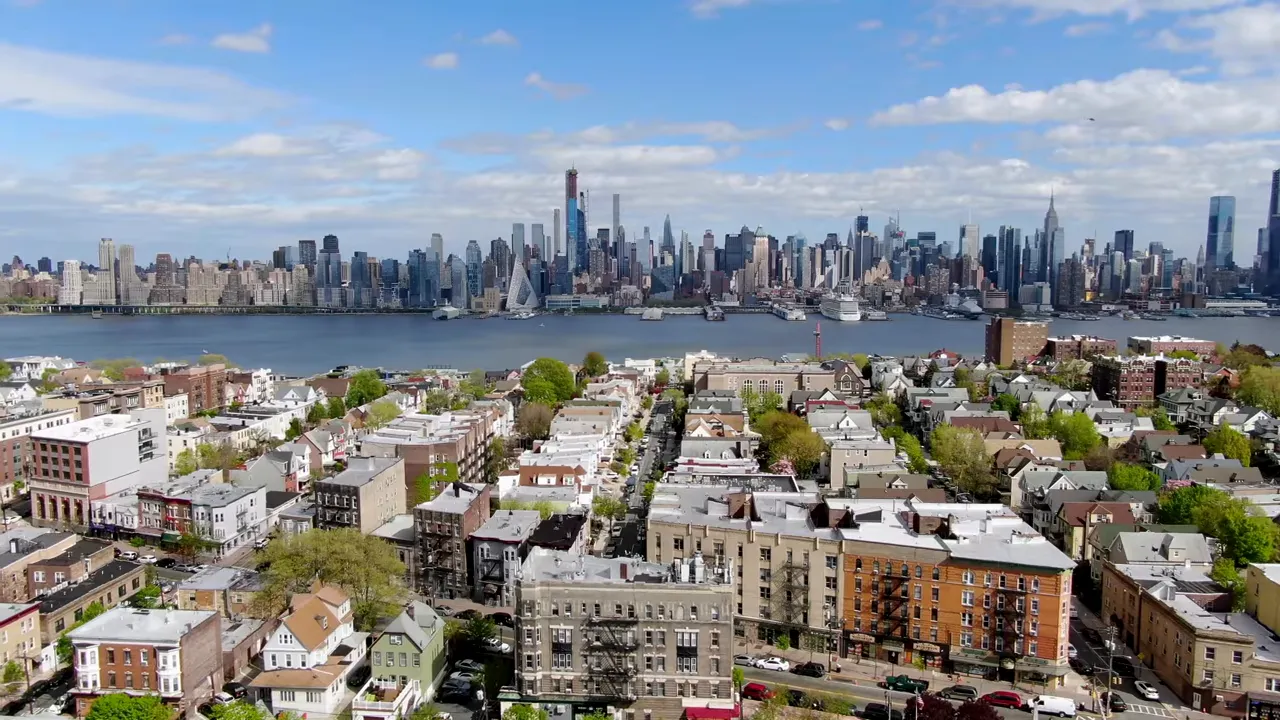
Final checklist before you sign
- Get preapproved and understand your loan options and any lender incentives.
- Sign a buyer representation agreement with a local agent before visiting model homes.
- Confirm what is included in writing and get a photo or document list.
- Review HOA documents and rules thoroughly.
- Check FEMA flood maps for the lot and consider flood insurance even if not required.
- Plan your upgrades and set a design center budget with priorities.
- Include contract protections for completion delays and warranty details.
- Schedule independent inspections at pre‑drywall and final stages.
- Document everything and keep records of promises and communications.
FAQs About Buying New Construction Homes in Myrtle Beach
How much do premium lots cost in Myrtle Beach and when are they released
Premium lots commonly carry premiums between $10,000 and $50,000 depending on view, location, and scarcity. Builders release lots in phases, so if you want a specific lot type such as a waterfront or cul‑de‑sac position, be prepared to move quickly when that phase opens because multiple buyers may compete for the same premium lot.
Do I need an inspection on a new build
Yes. A private inspection at pre‑drywall and at final stages is strongly recommended. Municipal inspections check code compliance, but a private inspector will look for workmanship issues and potential problems that can be addressed before closing. Expect to pay $350 to $500 per inspection.
What warranties come with new construction homes
Warranty structures vary, but a common framework includes one year for workmanship and finishes, two years for systems like HVAC and plumbing, and ten years for structural elements such as foundations and load‑bearing framing. Builders usually require warranty requests to be submitted through an online portal to track repairs.
When is the best time to buy to get the strongest incentives
Winter months, especially December through February, often provide the best negotiation leverage. Builders want to hit year‑end targets and clear inventory. Asking about fiscal year‑end closeout deals can also reveal deep incentives. Spring offers the most selection but also the highest competition.
Should I use the builder's lender to get incentives
Using a builder’s lender can unlock incentives such as rate buydowns or closing cost credits, but you should always compare the net benefit against offers from outside lenders. Calculate the full cost of the loan, not just the upfront incentives, to determine which lender offers the best long‑term value.
Can I change the floor plan or move walls with a semi‑custom build
Semi‑custom builds typically allow you to choose from a set of floor plans and finishes but limit structural changes like moving loadbearing walls. For significant layout modifications you will need a custom build, which increases cost and timeline. Always confirm what changes are permitted with the builder before signing.
What if the builder misses the completion date
Review your contract for completion timelines and remedies. Some contracts include per‑diem compensation or temporary housing allowances for delays beyond an agreed threshold, such as 30 days. If your contract lacks protections, negotiate to add them. Maintain documented communications about expected timelines and any changes.
Are HOA fees high in Myrtle Beach communities
HOA fees vary widely. Some neighborhoods have modest fees under $50 per month, while others can be $300 to $500 per month depending on amenities and maintenance services. Always review HOA documents for fee schedules, capital assessments, and restrictions on rentals, exterior changes, or vehicle parking.
Closing Thoughts and Next Steps for Buying Your Myrtle Beach Home
Buying new construction homes in Myrtle Beach, SC can be an excellent path to a low‑maintenance, energy‑efficient home tailored to your needs. The key to a smooth and financially smart experience is preparation: get preapproved, hire a buyer’s agent who represents only you, ask the right questions at the design center, select the right lot and community for your lifestyle, and include contract protections for delays and warranty coverage.
If you are relocating from another state, plan for remote monitoring during construction and insist on pre‑drywall and final independent inspections. Time your purchase strategically if you want to maximize builder incentives, with winter and fiscal year‑end periods typically providing the most leverage. With the right team and the right questions, it can be smooth, economical, and deeply satisfying. Call or text us at 833-867-4376
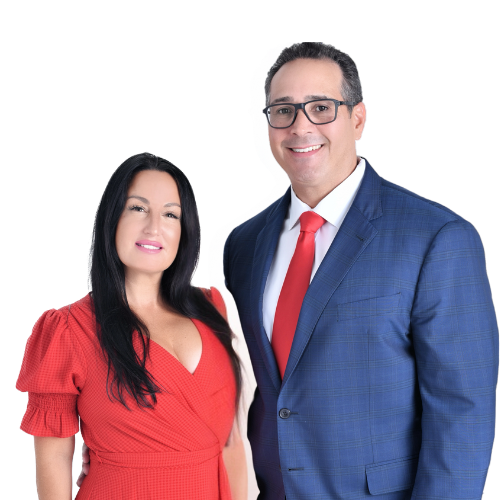
Cris & Alysia
A husband-and-wife team with a passion for helping people find their perfect home in sunny Myrtle Beach. Together, we bring decades of experience, a whole lot of heart, and a shared commitment to making real estate an exciting, stress-free journey for our clients.
